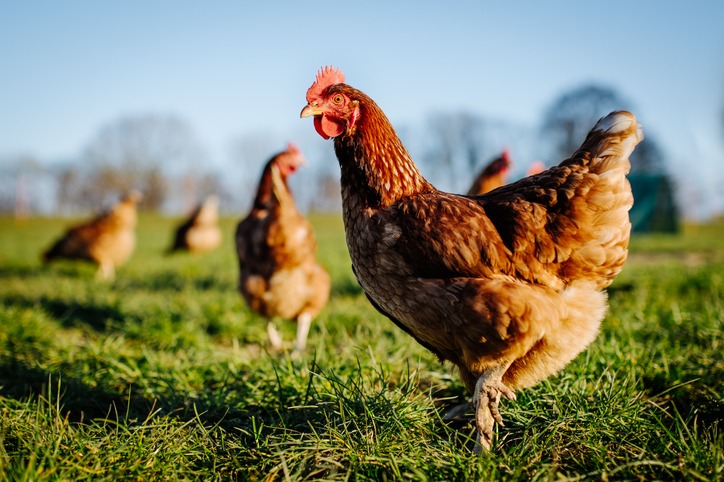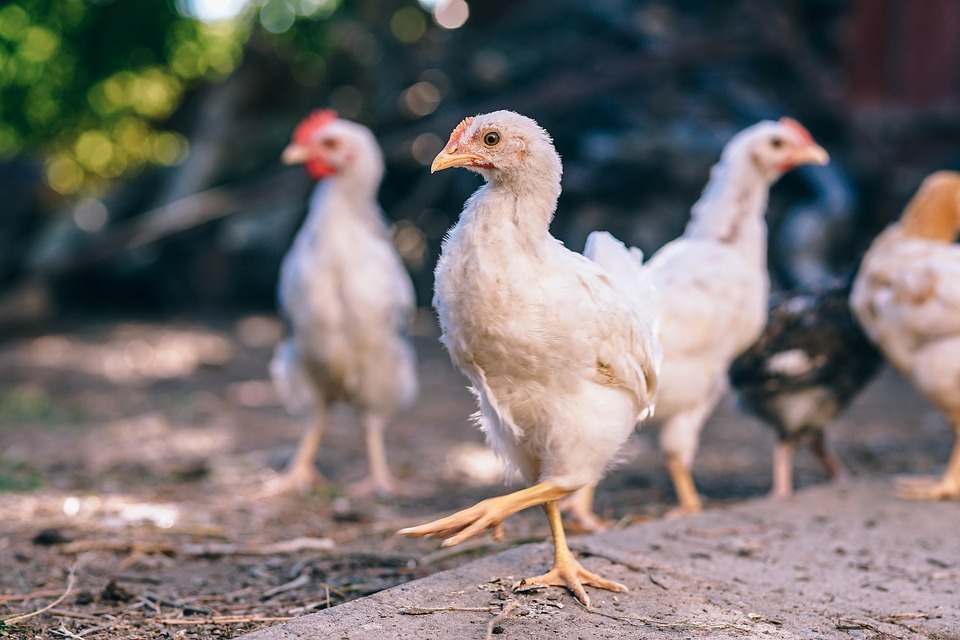Keeping Chickens Mobile: The Benefits of Ranging Your Flock
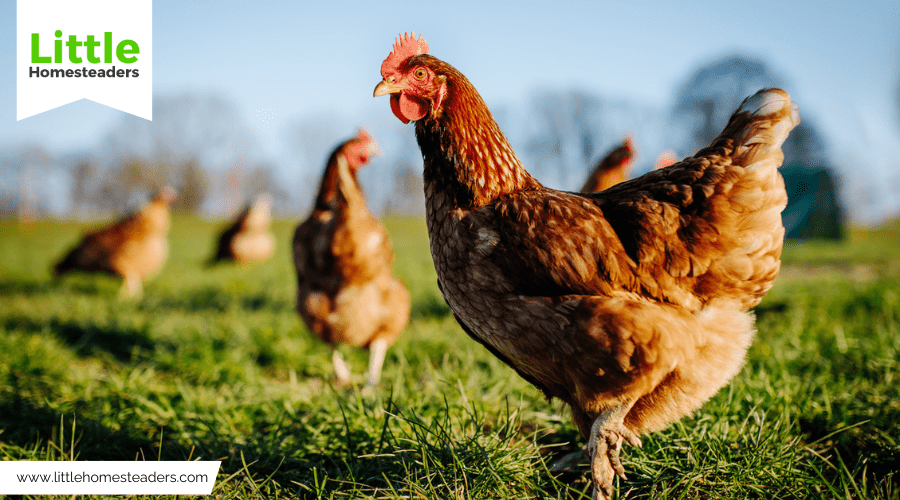
When you think of chickens, you might picture them scratching and pecking across a lush green pasture, enjoying the freedom of the outdoors. This idyllic scene captures the essence of free-ranging—a practice that benefits chickens, their keepers, and the environment. Free-ranging isn't just about letting your flock roam wherever they please; it's a deliberate approach to providing a natural and enriching environment for your birds while reaping rewards like improved egg quality, natural pest control, and even cost savings.
In this article, we'll explore the advantages of free-ranging, the challenges you'll face, and practical tips for making it a sustainable and rewarding part of your chicken-keeping routine.
Understanding Free-Range Chicken Keeping
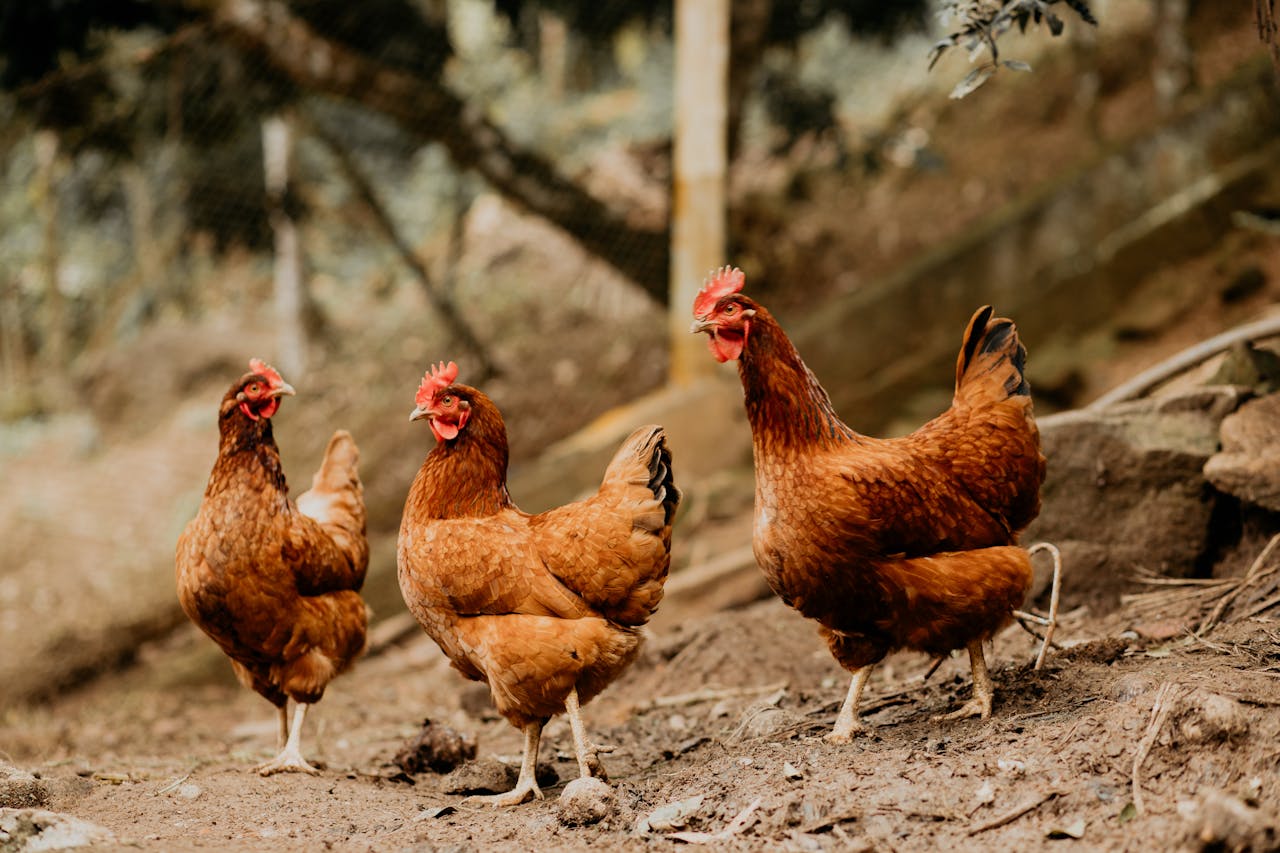
The term "free-range" often evokes images of hens roaming vast, open fields, but in reality, its meaning can vary widely. According to USDA regulations, for eggs or poultry to be labeled "free-range," the birds must have access to the outdoors. However, the quality and duration of that access aren't strictly defined, meaning free-range conditions can range from a small enclosed yard to an expansive pasture.
For backyard and small-scale chicken keepers, free-ranging usually means allowing chickens to explore outside a coop or run, often within a designated area. This practice gives chickens the freedom to engage in their natural behaviors like scratching, dust bathing, and foraging for food. While this freedom has its risks, the benefits far outweigh the challenges when managed responsibly.
Understanding the concept of free-ranging also involves recognizing what it isn’t. Free-ranging doesn’t mean leaving your flock completely unsupervised or without boundaries. Even in a free-range setup, chickens benefit from structure, safety measures, and human oversight. By establishing clear guidelines and consistent routines, you can ensure that your chickens enjoy the benefits of free-ranging without unnecessary risks.
Key Benefits of Free-Ranging Chickens
1. Natural Pest Control
Chickens are nature's pest managers. As they roam, they'll enthusiastically gobble up insects like ticks, flies, beetles, and even small rodents. This reduces pest populations in your yard or garden without the need for chemical pesticides. By scratching and digging through the soil, they also help disrupt the life cycles of pests, preventing future infestations.
Your flock’s natural scavenging behavior makes them particularly effective at controlling pests in areas where infestations might otherwise go unnoticed. For instance, chickens can help keep tick populations at bay in wooded or grassy areas, reducing risks for both your birds and your family. Similarly, their ability to find and eat small rodents like mice can help prevent the spread of diseases these pests often carry.
By strategically managing your flock's foraging area, you can focus your pest control efforts on specific problem zones. Chickens will gladly patrol your garden, orchard, or compost pile, eating insects and grubs that could otherwise damage your plants or spread harmful bacteria.
2. Improved Egg and Meat Quality

The dietary diversity chickens gain from foraging has a direct impact on the quality of their eggs and meat. Eggs from free-ranging hens boast richer, darker yolks—a visual indicator of their higher nutrient content. Studies show that free-range eggs contain:
- Up to 30% more vitamin E.
- 40% more vitamin A.
- Four times more omega-3 fatty acids.
These nutrients don’t just benefit the birds themselves—they also provide a healthier option for you and your family. Omega-3 fatty acids, for example, are known to support heart health and reduce inflammation, making free-range eggs a valuable addition to any diet.
Similarly, free-ranging meat chickens (or broilers) have leaner, more flavorful meat. Their active lifestyle and varied diet contribute to meat that's rich in omega-3s, vitamins, and antioxidants. The physical activity of free-ranging also results in a firmer texture and a more natural flavor profile. Many home cooks and chefs alike praise the quality of pasture-raised chicken meat, noting its ability to elevate the taste of simple dishes.
Allowing your chickens to roam also reduces their exposure to synthetic additives or hormones often found in commercial feed, ensuring a cleaner, healthier product. By choosing free-range practices, you're not only supporting the well-being of your flock but also providing superior-quality food for your table.
3. Cost Savings
Feeding your flock can be one of the most significant costs of chicken keeping. Free-ranging helps offset these expenses by allowing chickens to forage for insects, seeds, and grasses, which supplement their diet. With access to these natural food sources, you can reduce your reliance on commercial feed by up to 50%, depending on the size of your flock and the quality of your free-range area.
Consider the financial impact of feeding a flock of ten chickens. If each chicken eats about 1/4 pound of feed daily, that’s roughly 2.5 pounds of feed per day—or over 900 pounds annually. By allowing your chickens to forage for a significant portion of their diet, you could save hundreds of dollars on feed costs each year.
In addition to direct savings, foraging improves the nutrient density of the eggs and meat your chickens produce. This means you get more value out of every egg or pound of meat your flock provides, making your investment in free-ranging even more worthwhile.
4. Enhanced Flock Health and Happiness
Chickens are happiest when they're allowed to act like chickens. Scratching, pecking, exploring, and dust bathing are instinctual behaviors that are difficult to replicate in confined spaces. Free-ranging gives your flock the opportunity to engage in these activities, which improves their overall well-being.
Health benefits include:
- Increased physical activity helps prevent obesity.
- Exposure to natural sunlight aids in vitamin D production.
- Reduced stress levels, leading to improved immune function and disease resistance.
Happier, healthier chickens are also more productive, laying higher-quality eggs more consistently. You’ll likely notice that a free-ranging flock is more lively, curious, and engaged compared to chickens kept solely in a coop or small run. This not only benefits the birds but also enhances your experience as a chicken keeper. Watching your chickens roam and explore can be a source of joy and relaxation, turning your backyard into a hub of activity.
5. Environmental Impact
Free-ranging chickens contribute to a healthier environment. As they forage, they aerate the soil with their scratching, breaking up compacted dirt and improving water penetration. Their droppings act as a natural fertilizer, enriching the soil with essential nutrients like nitrogen and phosphorus.
This natural fertilization process supports the growth of healthier plants and grasses, making free-ranging chickens an excellent addition to gardens, orchards, or pastures. Additionally, chickens can help control weeds by eating seeds and young plants, reducing the need for herbicides. This creates a more sustainable and eco-friendly land management system that benefits not only your flock but also your overall property.
By integrating rotational grazing techniques—where you move chickens between different areas—you can prevent overgrazing, improve soil health, and encourage biodiversity. Rotational grazing is especially beneficial for regenerating depleted pastures, making it a key strategy for those who want to combine free-ranging with sustainable farming practices.
Managing Risks and Challenges
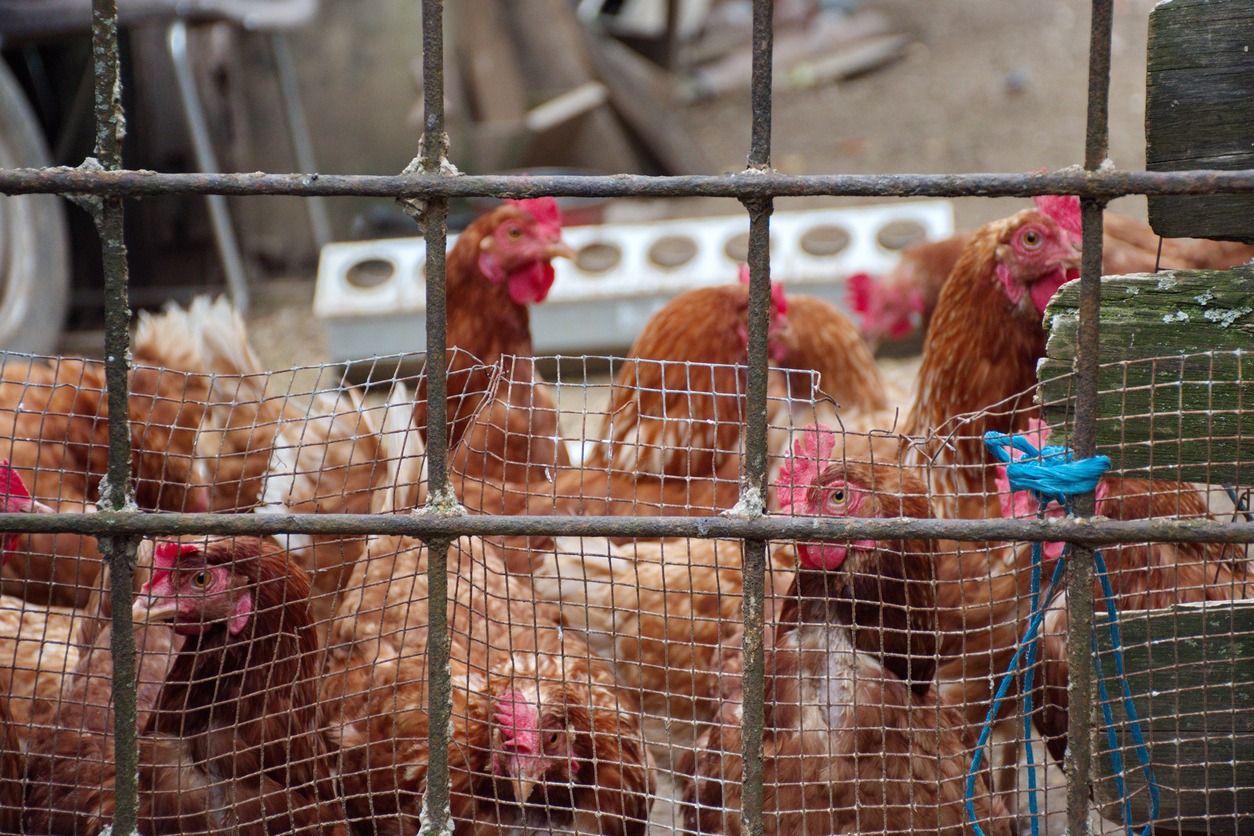
While the benefits of free-ranging are significant, this practice comes with challenges that require careful planning and management.
1. Predator Protection
Predators like foxes, hawks, raccoons, and stray dogs pose the biggest threat to free-ranging chickens. To protect your flock:
- Use secure fencing around the free-range area.
- Provide plenty of hiding spots like shrubs or shelters.
- Consider using a livestock guardian dog or other protective animals.
Ensure your chickens return to a safe, secure coop each evening to minimize nighttime risks. A well-constructed coop with locking doors and predator-proof wire is your flock's best defense after dark.
2. Nutrition and Feeding
While foraging provides a diverse diet, it's not always enough to meet all of your chickens' nutritional needs, especially in winter or in areas with poor forage. Supplement their diet with a quality layer or broiler feed, and monitor their weight and egg production to ensure they're thriving.
3. Environmental Hazards
Free-ranging chickens are more exposed to environmental dangers like toxic plants, sharp objects, or extreme weather. Conduct regular checks of the free-range area to remove hazards and provide adequate shade, water, and dust baths to keep them comfortable.
4. Zoning and Rotation
Chickens can damage grass and soil if left in the same area for too long. Rotational grazing—moving chickens between different areas—prevents overgrazing and allows the land to recover. Mobile coops, often called "chicken tractors," are a practical way to manage zoning while giving your flock access to fresh forage.
Practical Tips for Free-Ranging Success
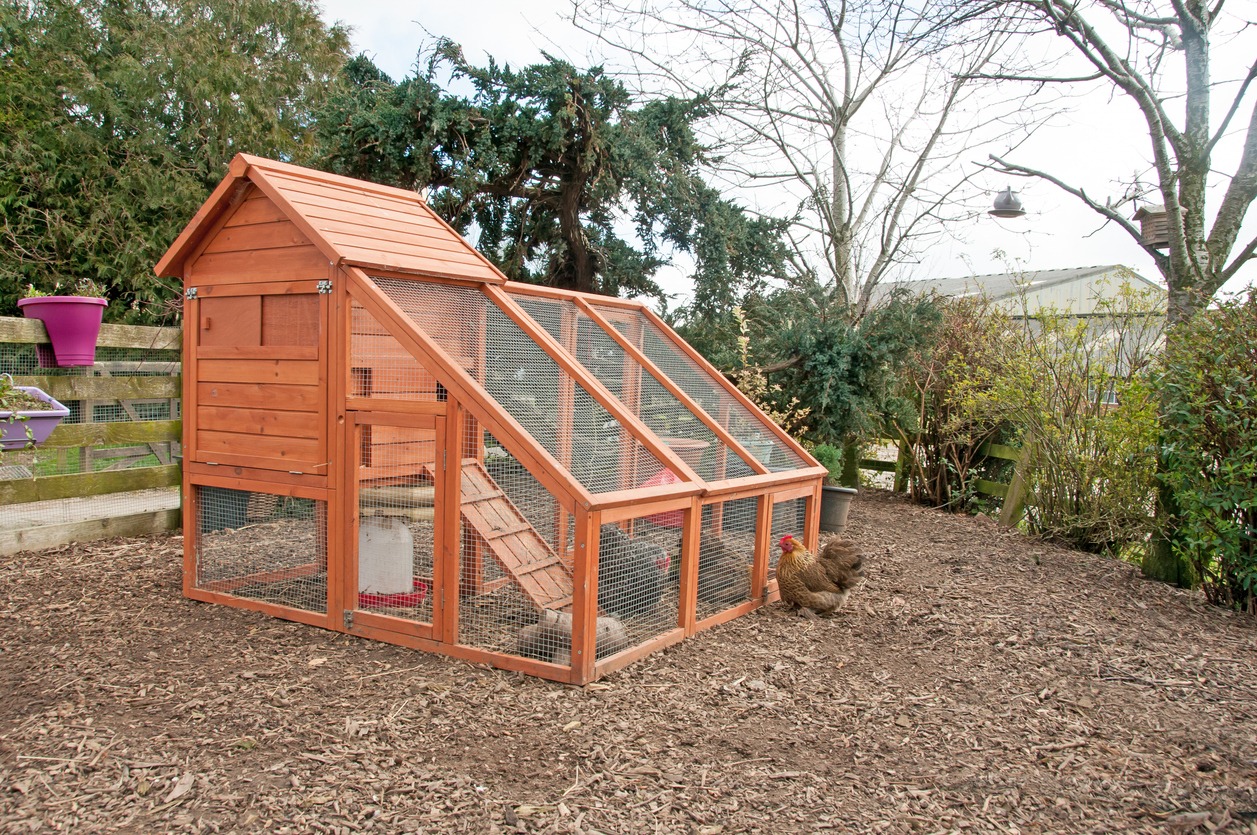
- Choose the Right Breeds: Some breeds are better suited for free-ranging than others. Look for hardy, active breeds like Rhode Island Reds, Leghorns, or Sussex that are natural foragers.
- Train Chickens to Return to the Coop: Start by letting your flock out for short periods close to dusk. Chickens naturally return to their coop as it gets dark. Gradually increase their free-ranging time as they learn the routine.
- Use Mobile Setups: Portable coops or pens allow you to move your chickens to new areas, promoting soil regeneration and giving your flock access to fresh forage.
- Monitor Regularly: Keep an eye on your flock while they range. Early intervention can prevent injuries or predator attacks.
Sustainability and Long-Term Benefits
Free-ranging isn't just good for your chickens—it's good for the planet. By reducing reliance on commercial feeds, chemical pesticides, and synthetic fertilizers, free-ranging aligns with sustainable and regenerative farming practices. Over time, your property will benefit from healthier soil, greater biodiversity, and a reduced carbon footprint.
Conclusion
Free-ranging chickens unlock a world of benefits, from healthier, happier birds to tastier eggs and meat. While challenges like predators and nutrition management exist, they can be addressed with thoughtful planning and responsible practices. By embracing free-ranging, you're not only supporting your flock's well-being but also contributing to a healthier, more sustainable environment.
Start small, learn as you go, and enjoy the rewards of keeping your chickens mobile. You’ll quickly see why free-ranging is a win-win for everyone involved.

